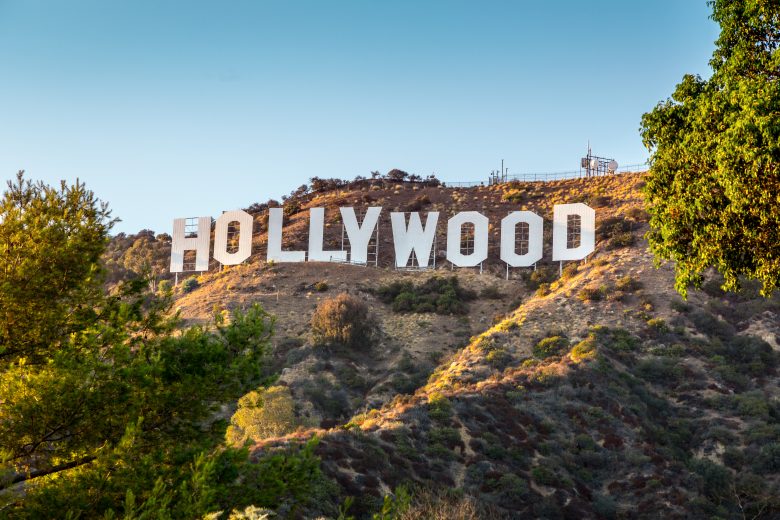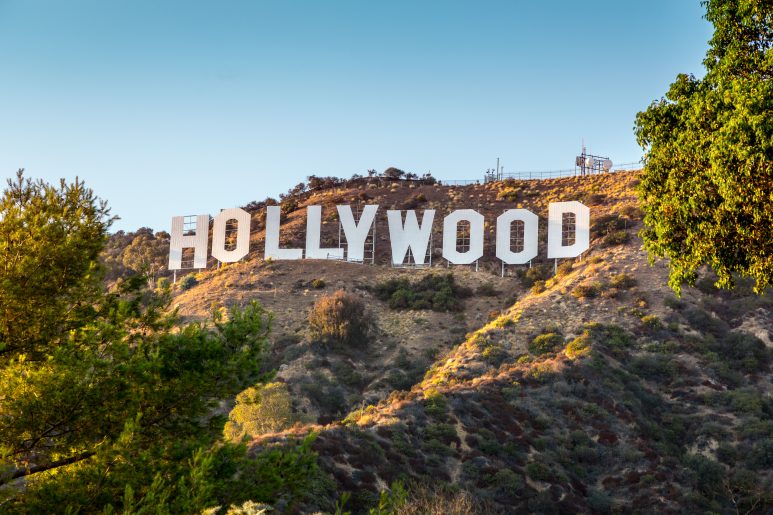By Michael Gaskins
A real-life movie drama is taking center stage in Hollywood. The Writers Guild of America (WGA) has been on strike since May 2nd. On July 13th, the Screen Actors Guild – American Federation of Television and Radio Artists (SAG-AFTRA) union joined them on the picket line. What’s at stake? Both unions say they’re demanding a new contract from the Alliance of Motion Pictures and Television Producers (AMPTP), which represents the studios. The actors and writers want more residuals from streaming services like Netflix and Disney and better pay and protections from artificial intelligence.

A recent Wall Street Journal article noted that AI tools can suggest storylines, character arcs, and dialogue. There is even an interactive module that shows how easy it is to create a basic script using ChatGPT. According to SAG-AFTRA union officials, studios want to scan actors’ images and use them forever in any format without their consent through AI. The AMPTP denies this. AMPTP said their proposal included “a groundbreaking AI proposal that protects actors’ digital likenesses for SAG-AFTRA members”. They said: “The claim made by SAG-AFTRA leadership that the digital replicas of background actors may be used in perpetuity with no consent or compensation is false. In fact, the current AMPTP proposal only permits a company to use the digital replica of a background actor in the motion picture for which the background actor is employed. Any other use requires the background actor’s consent and bargaining for the use, subject to a minimum payment.”
It is feared that a lack of regulation for artificial intelligence will hinder efforts to diversify the industry. The tech industry is white male-dominated, and AI is programmed to work a certain way based on the information provided. Veronica Combs (Tech Republic 2020) questions whether humans can trust algorithms and artificial datasets used to make decisions about movies, or whether they can be explained. Veronica asked, “Are male actors more likely to get a greenlight than female actors?” and “Are white actors more likely to be recommended for a leading role than black actors?”.
Axios.com spoke with Latino actor and writer Dani Fernandez about the Hollywood executives’ artificial intelligence plans. “I know they’re going to do that to you if they’re trying to replace us with AI. We are fighting for all of us.” Actors say that the struggle to make a living under the existing industry model will drive away more actors of colour. At an AI conference this past May in Los Angeles, many supporters said fear of artificial intelligence is reserved for the weak. AI, according to these tech aficionados, can only benefit Hollywood. Robert Legato, an Academy Award-winning visual effects guru, was one of the speakers. He was quoted by The Guardian stating, “People who hate it (AI) or are afraid of it are insecure about their own talent.”
Hollywood A-Listers have their concerns about AI. Deadline reported that star Tom Cruise recently spoke with SAG-AFTRA and AMPTP representatives about AI issues concerning stunt professionals. Actor Samuel L. Jackson told Rolling Stone that he will mark out parts of Marvel and Lucasfilm contracts that discuss using his likeness “in perpetuity”. Country Music Legend Dolly Parton recently told The Independent: “I think I’ve left a great body of work behind. I have to decide how much of that high-tech stuff I want to be involved [with] because I don’t want to leave my soul here on this earth.”
Meanwhile, AI is already being utilised to help approve Hollywood production initiatives. A Google blog from November 2022 covered the story of new research, ‘See It, Be It: What Families are Seeing on TV’, which examines representation. The study analyses changes in the screen and speaking time of the visually presenting features of the characters’ gender, skin tone, and age in scripted television from 2010. Actress Geena Davis’ Institute on Gender in Media (GDI), Google Research, and the University of Southern California (USC) produced the report. The survey looked at 400 hours representation in Nielsen’s top ten scripted US TV shows, including everything from blockbuster comedy and political dramas to romances and eerie sci-fi. According to the survey, female characters’ screen time did increase, yet the male-female divide continues. Male characters got 16% greater screen time in 2021, while medium and dark skin tones got 8 and 9 percentage points more since 2010. Male characters aged 33 to 60 and female characters aged 18 to 33 get more screen time than older males and younger women. Speaking time for female characters of dark skin tone rose the most, but they are still the group least likely to talk when shown on screen.
AI is continually evolving at a breakneck pace. It’s too early to determine what will happen to people of colour in the industry, but many believe they know the ending. Christina Pina, chair of the WGA’s Latinx Writers Committee, gave her personal view to Axios.com: “The AI has an inherent bias in it. We know it can lie, it can misrepresent information. We know that AI will continue to implement systemic issues in our society around race.”” Another writer, Mando Alvarado, told Axios.com that he believes executives are being shortsighted by hesitating to agree on AI. “AI can replace all of us. I think that’s the part [studio executives] don’t really see — AI can decide what movie to make.”
It is still too soon to determine whether artificial intelligence will have a significant influence on the Entertainment industry. Sources from both sides say the strikes could last a while as the unions and producers share their thoughts on AI’s usefulness. Writers and actors both can’t help but be concerned about the fundamentally discriminatory data AI uses and its possible long-term detrimental repercussions for the diversity of the film and television business. The story continues.

